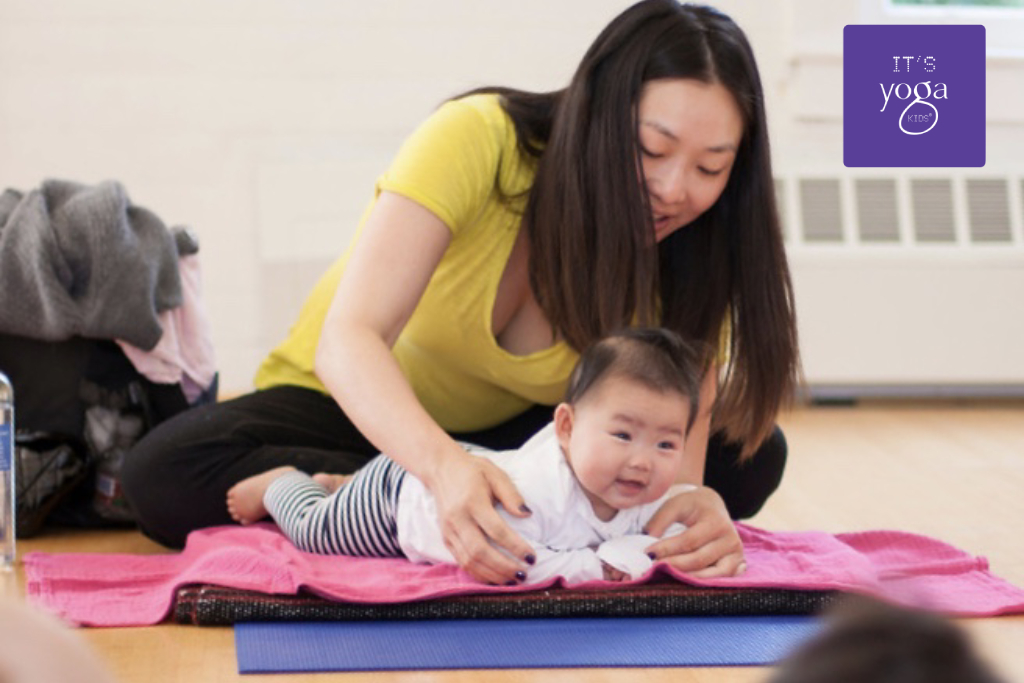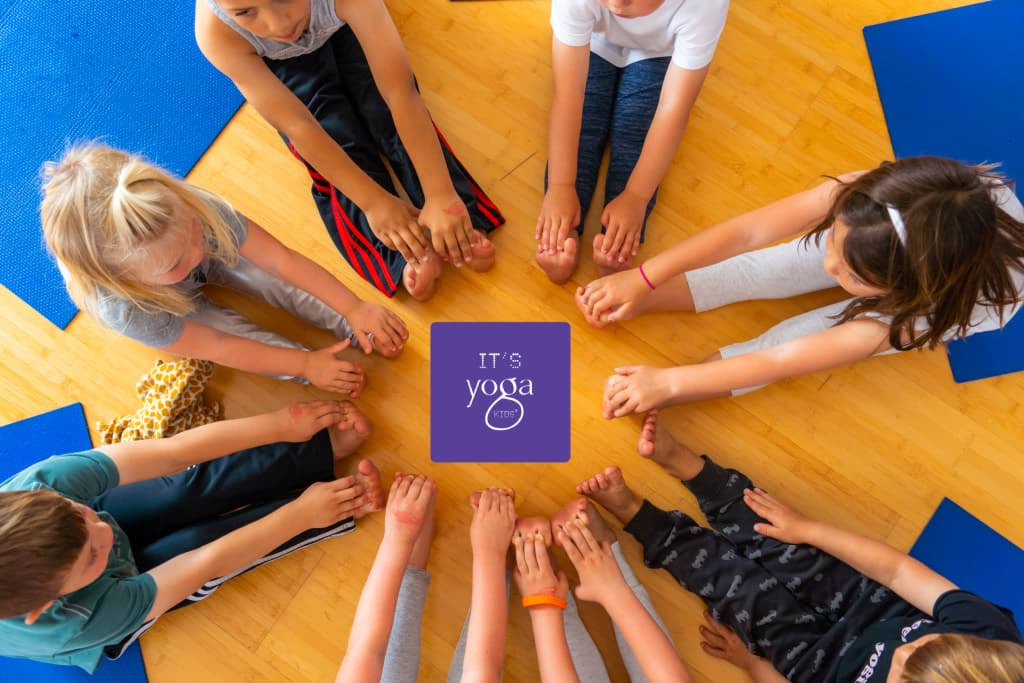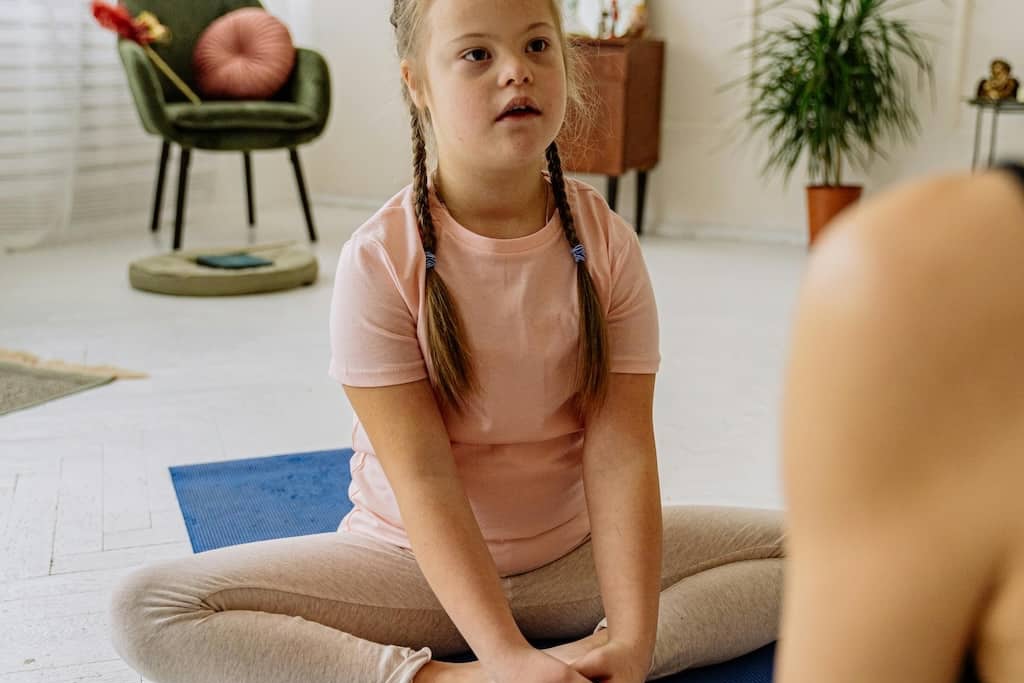Press PLAY to listen to this post.
World Health Day, celebrated annually on April 7, shines a spotlight on global health challenges and solutions. This year’s theme, Healthy Beginnings, Hopeful Futures, emphasizes maternal and newborn health, urging efforts to reduce preventable deaths and improve care. Tragically, nearly 300,000 women die annually due to pregnancy or childbirth complications, and over 2 million babies die within their first month. These statistics highlight the urgent need for accessible, high-quality healthcare.
While addressing maternal and newborn health is critical, fostering wellness in children as they grow is equally vital. This is where baby yoga and kids yoga starting from infancy can play a transformative role. Yoga promotes physical, mental, and emotional well-being, helping children develop resilience, mindfulness, and healthy habits. Studies show that yoga can reduce stress, improve concentration, and enhance social interactions in children. It’s a practice that nurtures their overall health and prepares them for a brighter future.
On World Health Day, let’s lift the power of movement and mindfulness to create healthier communities. By integrating practices like kids yoga into daily routines to reduce stress including anxiety and depression, we can contribute to a world where every child thrives.
As we stretch, breathe, and grow together, we also sow the seeds for a brighter, more compassionate future—because every child deserves to feel their unique light shine bright.
Press PLAY to listen to this post.
April 5, 2025, marks a special day: Love Our Children Day—a beautiful reminder to cherish, nurture, and celebrate the incredible young souls in our lives. This year, let’s embrace this day with the transformative power of kids yoga, a practice that inspires love, kindness, and connection.
Yoga isn’t just about physical poses; it’s a journey toward emotional, mental, and social well-being. For children, yoga becomes an empowering tool that boosts their confidence, helps them manage stress, and encourages mindfulness. On Love Our Children Day, we honor the importance of creating spaces for them to thrive.
Whether it’s playful poses like downward dog and tree pose or calming breathing exercises, kids yoga is a celebration of health, happiness, and creativity. It’s a moment for children to connect with their bodies and hearts—and for families and communities to connect with each other.
Today, let’s practice kindness together through movement and mindfulness. Let’s fill the air with giggles during a yoga class, foster strength and resilience through child-centered activities, and remind our children that they are loved, seen, and cherished.
As we stretch, breathe, and grow together, we also sow the seeds for a brighter, more compassionate future—because every child deserves to feel their unique light and shine bright.
Happy Love Our Children Day, and Namaste with hugs and High 5's to all!
Press PLAY to listen to this post.
March is Self-Harm Awareness Month, a time to raise awareness about self-injury and support those who struggle with it. According to the Centers for Disease Control and Prevention, up to 30% of teenage girls and 10% of boys have intentionally hurt themselves. The rates of self-harm have increased significantly over the past decade, especially among girls aged 10-14.
Yoga can be a powerful tool in helping teens manage their emotions and reduce self-harm urges. By practicing yoga, teens learn mindfulness, which helps them stay present and aware of their emotions without acting on them impulsively. Yoga also promotes physical well-being, providing a healthy outlet for stress and negative emotions. The principles of non-violence (ahimsa) and self-compassion in yoga encourage teens to treat themselves with kindness and respect.
Incorporating yoga into a teen's routine can create a sense of control and empowerment, reducing the need to self-harm as a coping mechanism. By creating a supportive and inclusive environment, yoga can help teens build resilience and develop healthier ways to manage their emotions.
IYK® Teens meet in person and online on Sundays at 10:45am PT. Register your teen here.
Press PLAY to listen to this post.
March is Developmental Disabilities Month, a time to raise awareness and celebrate the unique abilities and contributions of individuals with developmental disabilities. Kids yoga is an excellent tool to support children with developmental disabilities, helping them to thrive both physically and emotionally.
Benefits of Kids Yoga for Developmental Disabilities
- Improves Motor Skills: Yoga helps children develop fine and gross motor skills through various poses and movements. This can be especially beneficial for children with developmental disabilities, as it enhances their coordination, balance, and overall physical abilities.
- Enhances Focus and Concentration: The practice of yoga involves mindfulness and concentration. For children with developmental disabilities, yoga can help improve attention spans and reduce hyperactivity, making it easier for them to stay focused and calm.
- Boosts Confidence and Self-Esteem: Yoga encourages self-awareness and self-acceptance. By mastering poses and achieving personal goals, children build confidence and self-esteem. This sense of accomplishment is crucial for their emotional well-being.
- Promotes Relaxation and Stress Relief: Yoga includes breathing exercises and relaxation techniques that help children manage stress and anxiety. These practices can create a calming effect, reducing tension and promoting a sense of tranquility.
- Encourages Social Interaction: Yoga classes provide a supportive and inclusive environment where children can interact with their peers. Partner poses and group activities foster teamwork, communication, and social skills, helping children with developmental disabilities feel more connected and accepted.
Creating an Inclusive Yoga Practice
When teaching yoga to children with developmental disabilities, it's essential to adapt the practice to meet their individual needs. This might include using visual aids, offering extra support, and creating a structured and predictable routine. By tailoring the practice, we can ensure that every child experiences the benefits of yoga in a way that suits them best.
Kids yoga is a powerful and inclusive practice that can make a significant difference in the lives of children with developmental disabilities. By celebrating Developmental Disabilities Month with yoga, we can promote physical and emotional well-being, foster a sense of community, and empower children to reach their full potential.




